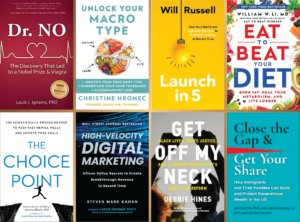The Grim Realities of the Publishing Industry

Share
The only thing we know for sure about the future of the publishing industry is that it will change.
Over the past two years, the industry has weathered the pandemic along with the rest of us. At first, many worried that books wouldn’t survive, and the publishing industry might cease to exist. But 2020 surprised us all with overall robust revenue streams for the industry. Then, with the supply chain issues of 2021, publication dates were delayed due to paper shortages. Though it has slowed things down a bit more than usual, all signs point to the publishing industry coming out on top.
Low Odds of Getting Published
Unfortunately for wannabe authors, it seems the odds of getting published are getting worse. Every year, more and more people are looking to add “author” to their credentials, and as a result, agents get thousands upon thousands of submissions each year. It’s impossible to wade through all these submissions, so only those with referrals or direct connections to agents can expect to get eyes on their proposal. And even then, of the thousand-plus submissions agents do get, they typically only take on three to ten new authors a year.
Assuming you are able to land an agent, the odds of getting a book deal are lower still. Lately, editors are signing less than 1% of the manuscripts offered to them. That puts your odds of getting an agent and a traditional book deal at around 1 in 1000 (and that’s being optimistic).
So, is it really worth it to play the odds? To answer that question, you have to consider the payoff.
Author Income
In the latest Author’s Guild Income Survey (conducted in 2018), the numbers aren’t too comforting. The median income for all published authors was down 3% from 2014, to roughly $6,000 a year. And that’s pretty generous, considering the average book sells less than 250 copies a year, even with a traditional publishing house behind it. Nevertheless, authors spent an average of 7.5 hours a week promoting their books—a 14% increase over the past four years.
To put the nail in the coffin, the Big 5 publishers are increasingly chasing blockbusters and celebrity authors, leaving fewer resources for the majority of mid-list authors.
All this is to say: to get traditionally published is hard. It was hard twenty years ago, and it’s even more competitive today. The publishing industry will continue to evolve. Yet, we can expect these trends to more or less continue in the direction they’ve been going.
But maybe you’ve read all this, and you still want that book deal.
So, What Do You Do Now?
The good news is publishing is here to stay. The world continues to crave books, and the industry needs to sign new authors. You just have to find your salable concept and write a proposal that proves that you know what you’re talking about—and that you can and will sell books.
The Bottom Line Is This:
It’s not impossible to get published, but it can be hard. With the right resources and industry knowledge, you have a real shot.



